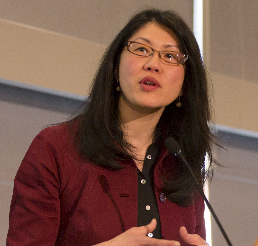IRES Seminar Series
Time: 12:30pm to 1:30pm (every Thursday)
Location: AERL Theatre (room 120), 2202 Main Mall
*****************************************************************************************
Future urban expansion and implications for building energy demand and global croplands
Abstract:
This talk will draw on recent research that examines the implications of future urban expansion on global croplands and energy demand by buildings. Using both top-down and bottom-up approaches and scenarios, we examine operational building energy use, specifically, for heating and cooling. Globally, the energy use for heating and cooling by mid-century will reach anywhere from about 45 EJ/yr to 59 EJ/yr (respectively, increases of 5% to 40% over the 2010 estimate). Most of this variability is due to the uncertainty in future urban densities of rapidly growing cities in Asia and, particularly, in China. A surprising finding is that waiting to retrofit of the existing built environment until markets are ready to widely deploy the most advanced renovation technologies, leads to more savings in building energy use and avoids lock-in.
Our results also show that urban expansion will result in a 1.8-2.4% loss of global croplands by 2030, with substantial regional disparities. About 80% of global cropland loss from urban expansion will take place in Asia and Africa. In both Asia and Africa, much of the cropland that will be lost is more than twice as productive as national averages. Asia will experience the highest absolute loss in cropland while African countries will experience the highest percentage loss of cropland. Globally, the croplands that are likely to be lost were responsible for 3-4% of worldwide crop production in 2000. Urban expansion is expected to take place on cropland that is 1.77 times more productive than the global average. The loss of cropland is likely to be accompanied by other sustainability risks, and threatens livelihoods, with diverging characteristics for different mega-urban regions. Governance of urban area expansion thus emerges as a key area for securing livelihoods in the agrarian economies of the Global South.
This seminar will not be filmed.
Bio:

Karen Seto is Associate Dean for Research and Professor at the Yale School of Forestry and Environmental Studies. She is an expert in characterizing and forecasting urbanization, urban mitigation of climate change, and satellite remote sensing. She has pioneered methods to reconstruct land-use dynamics with satellite data and to forecast the expansion of urban areas. She was a Coordinating Lead Author for the IPCC Fifth Assessment Report, and has served on many U.S. National Research Council Committees, including the NRC Committee on Pathways to Urban Sustainability. She was a founding co-chair of the Urbanization and Global Environmental Change Project of the International Human Dimensions Programme, and Executive Producer of the documentary film, “10,000 Shovels: Rapid Urban Growth in China.” From 2000 to 2008, she was on the faculty at Stanford University, in the Woods Institute for the Environment and the School of Earth Sciences. She was named an Aldo Leopold Leadership Fellow in 2009. She joined the Yale faculty in 2008.

Photo credit: faeryhedgehog from flickr/Creative Commons